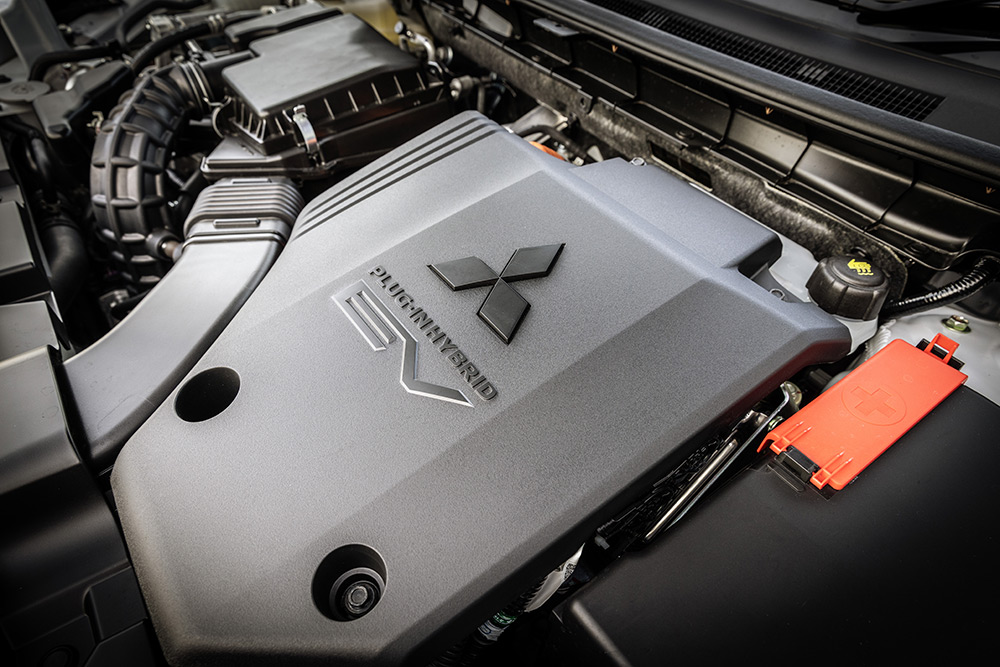Mitsubishi plug-in hybrid drivers favour EV mode
New research from Mitsubishi seeks to dispel myths about plug-in hybrid electric vehicles.

One of the most frequently raised about the benefits of plug-in hybrid electric vehicle (PHEV) technology is whether consumers bother to charge their cars and drive on battery power, when they have the convenience of a combustion engine at their disposal.
Mitsubishi Motors Australia has sought to answer that question and dispel some other myths about how drivers use its PHEV vehicles, by commissioning independent research provider Platform One to survey its PHEV owners.
Platform One surveyed a sample of about 800 Mitsubishi PHEV owners, as well as a range of PHEV intenders, augmenting the insights with additional ARC market data to capture a wide view of the market’s evolution.
The results, according to Mitsubishi, showed that new Outlander PHEV owners use their vehicle in EV mode 81% of the time, while Eclipse Cross PHEV owners use EV mode 75% of the time.

These figures contrast with often-cited European data, stating an EV use of only 45–49%, for private PHEV owners.
Additional insights gleaned from the research include the fact most Mitsubishi PHEV owners charge daily (50% Outlander, 58% Eclipse Cross) and make use of home charging (97% and 96%, respectively).
The research indicates 85% of Outlander PHEV owners and 89% of Eclipse Cross owners charge at home using a domestic socket, and that owners are using their vehicles predominantly as short-range EVs.
When asked their top five reasons for choosing a PHEV, both Outlander and Eclipse Cross owners cited reduced running costs as their primary motivation.
Mitsubishi’s current-generation Outlander PHEV was introduced in 2022 and offers up to 84km of electric range and a combined real-world range exceeding 800km.
Mitsubishi says the Outlander PHEV variant makes up an estimated 20% of total Outlander sales, while the smaller Eclipse Cross PHEV has an even higher rate of PHEV adoption, at around 27% of total sales.
The combined figures lead Mitsubishi to claim a dominant 43% of the Australian PHEV new car market, which according to industry statistician VFACTS stands at 13,076 vehicles as at August.
This figure trails BEVs sales of 57,701 vehicles, and hybrid sales of 116,316 over the same period.
However, the trajectory of PHEVs is up 127% compared with the same time last year, followed by hybrids which are up 96%, with BEVs up only 1.4%.
Let us do the work finding your next new car
Related topics
Things to note
The information in this article has been prepared for general information purposes only and is not intended as legal advice or specific advice to any particular person. Any advice contained in the document is general advice, not intended as legal advice or professional advice and does not take into account any person’s particular circumstances. Before acting on anything based on this advice you should consider its appropriateness to you, having regard to your objectives and needs.
Insurance Products (excluding Travel Insurance) are issued by RACQ Insurance Limited ABN 50 009 704 152 (RACQI>) and arranged by RACQ Distribution Services Pty Ltd (RDS) ABN 35 116 361 650, AFSL 567130 and RDS' authorised representatives (including RACQ Operations Pty Ltd ABN 80 009 663 414, AR No. 234978 (RACQO)). Conditions, limits and exclusions apply.
Any advice provided by RDS and RACQO is general advice only and does not take into account your personal objectives, financial situation or needs and you will need to consider whether the advice is appropriate for you. Read the Product Disclosure Statement (PDS) before making a purchase decision on the product. You can also access our Target Market Determinations on this website.
RDS receives a commission from RACQI for the policies it arranges. RACQO receives fees paid for services it provides to RDS. Further details about remuneration are available on request prior to purchasing.
Banking and loan products issued by Members Banking Group Limited ABN 83 087 651 054 AFSL/Australian credit licence 241195 trading as RACQ Bank. Terms, conditions, fees, charges and lending policies apply. This is general advice only and may not be right for you. This information does not take your personal objectives, circumstances or needs into account. Read the disclosure documents for your selected product or service, including the Financial Services Guide and the Terms and Conditions, and consider if appropriate for you before deciding.
Except for RACQ Bank, any RACQ entity referred to on this page is not an authorised deposit-taking institution for the purposes of the Banking Act 1959 (Cth). That entity’s obligations do not represent deposits or other liabilities of RACQ Bank. RACQ Bank does not guarantee or otherwise provide assurance in respect of the obligations of that entity, unless noted otherwise.
RACQ Bank subscribes to the Customer Owned Banking Code of Practice which establishes higher standards than the law requires. The Code reflects modern consumer expectations and developments in approaches to issues such as consumer vulnerability, guarantors, and supporting customers through financial hardship. Please read our Customer Owned Banking Code of Practice page for more information.
RACQ Operations Pty Ltd (ABN 80 009 663 414 AR 000234978) and Members Travel Group Pty Ltd (ABN 45 144 538 803 AR 000432492) are acting as an Authorised Representative of the issuer of the insurance, Tokio Marine & Nichido Fire Insurance Co., Ltd. (ABN 80 000 438 291 AFSL 246 548). Any advice set out above is general in nature only, and does not take into account your objectives, financial situation or needs. Before purchasing any travel products, please consider the RACQ Travel Insurance Product Disclosure Statement (PDS) and the Target Market Determinations (TMDs) that apply to these products. Whilst the PDS outlines the Terms and Conditions of these products, the TMDs outline the intended class of customers that comprise the target market for these travel products. This will allow you to consider which products best suit your objectives, financial situation and needs and consider the products appropriateness to your personal circumstances. TMDs also outline matters involving the distribution and the review of these products. The PDS, Supplementary PDS and TMDs for each travel product can be found here.
